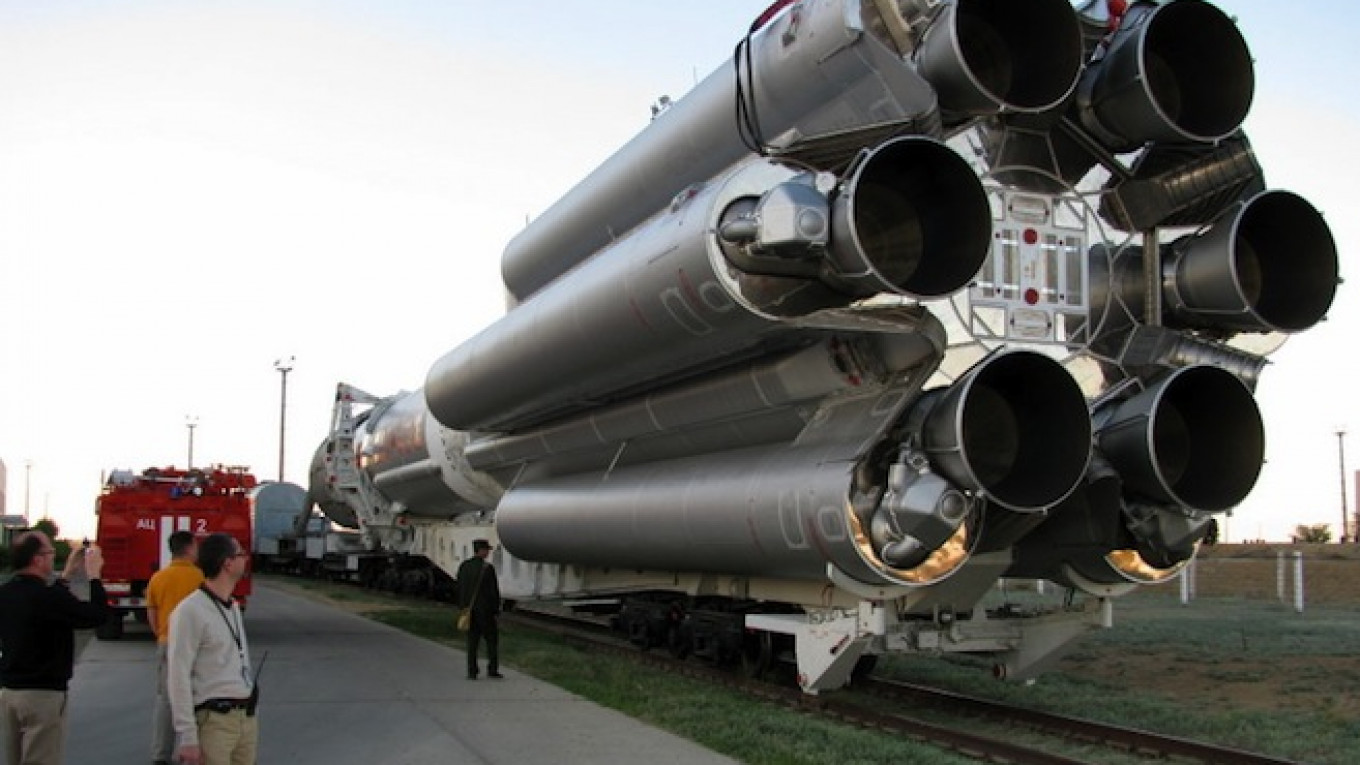An unmanned Russian Proton-M rocket carrying an advanced telecommunication satellite malfunctioned minutes after launching on Friday morning, Russian media reports say.
Ground controllers lost contact with the rocket nine minutes after it took off from the Baikonur cosmodrome in Kazakhstan, Itar-Tass reported.
The Russian Federal Space Agency, also known as Roscosmos, acknowledged the accident on their website Friday morning and said that all fuel and component parts had burned up in the atmosphere.
Agency head Oleg Ostapenko told journalists that the accident occurred at a height of 160 kilometers above Chinese territory and that a possible reason for the accident was a malfunction in one of the steering engines.
There were no immediate reports of injuries or damages on the ground.
The rocket was carrying an Express-AM4R communications satellite, designed to replace the Express-AM that Russia had put into orbit in August, 2011 but which malfunctioned almost immediately and was brought down into the Pacific Ocean the next year.
Ostapenko told Itar-Tass that the satellite had not been successfully launched into orbit and Ilya Solomatin, vice-president of the insurance company Ingostrakha, said that the rocket and satellite had been insured for 7.8 billion rubles ($224.7 million).
The Express-AM4R satellite is the most advanced telecommunications satellite used by Russia and is intended to provide affordable Internet access to those living in remote parts of the country.
The cost of the new satellite was more than 200 million euros ($274 million), an unidentified space official told Interfax.
The previous crash of a Proton-M occurred last July, when the rocket diverged from its course shortly after takeoff and collapsed with an explosion near the launch site.
It had been carrying more than 600 tons of heptyl and other fuel components, and the Kazakh government estimated the environmental damage from the crash at about $70 million, Interfax reported.
A Message from The Moscow Times:
Dear readers,
We are facing unprecedented challenges. Russia's Prosecutor General's Office has designated The Moscow Times as an "undesirable" organization, criminalizing our work and putting our staff at risk of prosecution. This follows our earlier unjust labeling as a "foreign agent."
These actions are direct attempts to silence independent journalism in Russia. The authorities claim our work "discredits the decisions of the Russian leadership." We see things differently: we strive to provide accurate, unbiased reporting on Russia.
We, the journalists of The Moscow Times, refuse to be silenced. But to continue our work, we need your help.
Your support, no matter how small, makes a world of difference. If you can, please support us monthly starting from just $2. It's quick to set up, and every contribution makes a significant impact.
By supporting The Moscow Times, you're defending open, independent journalism in the face of repression. Thank you for standing with us.
Remind me later.






